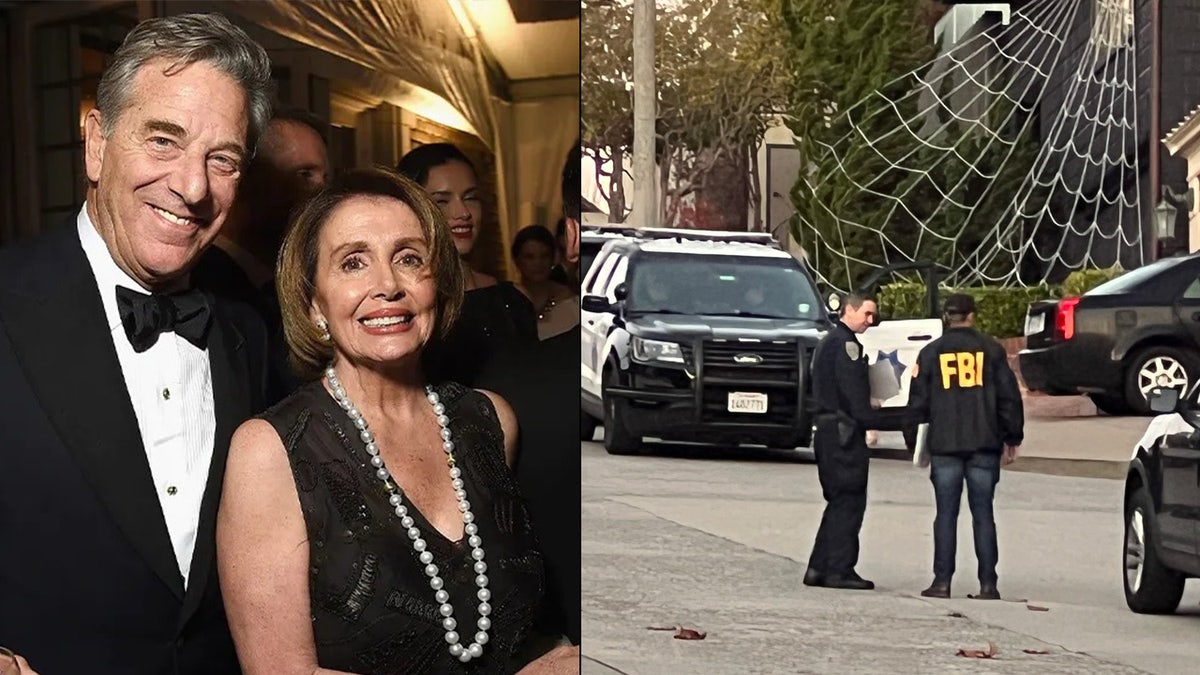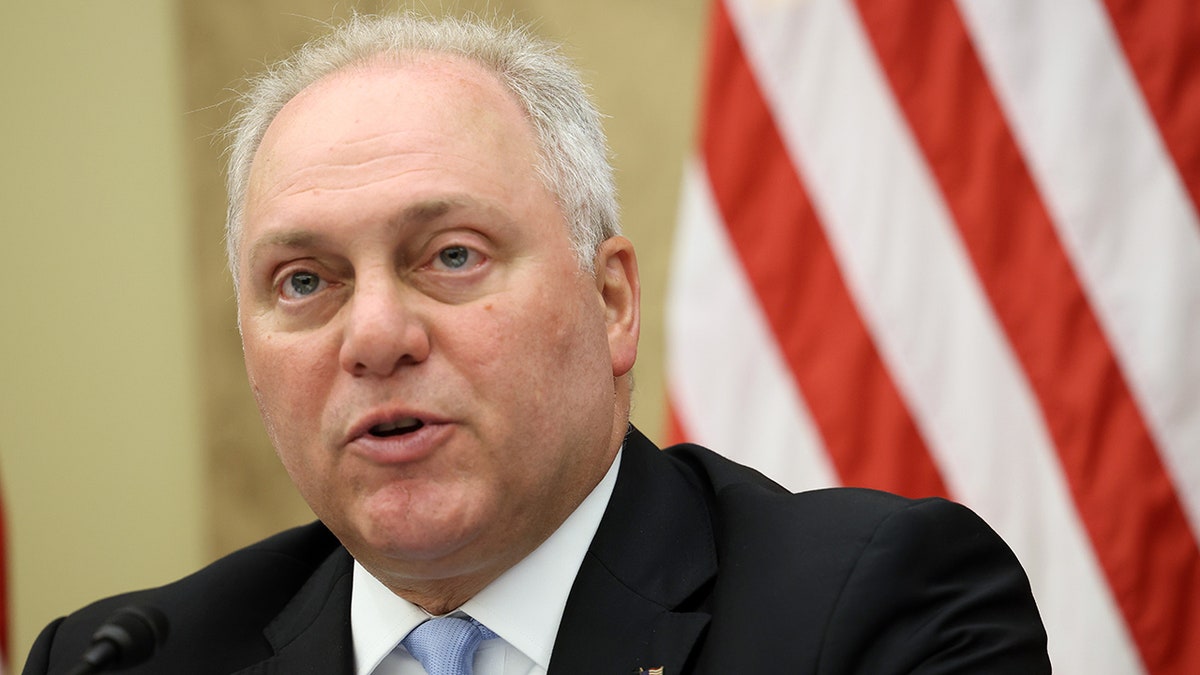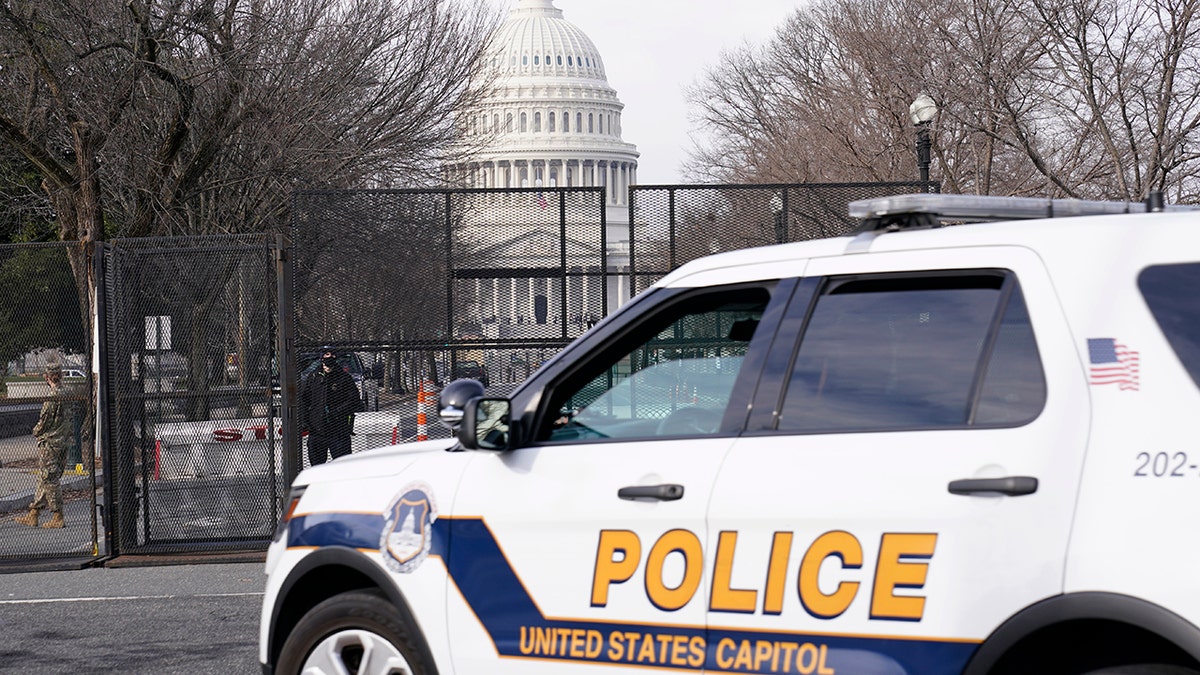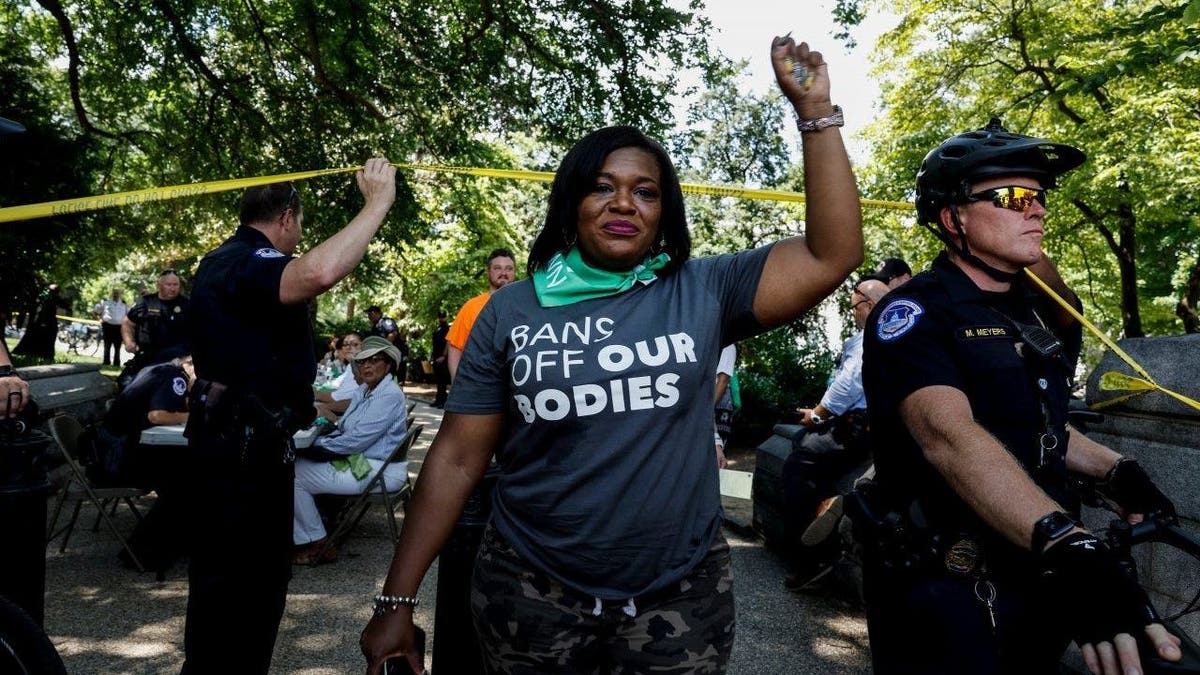Paul Pelosi attacker faces another day in court, officials reviewing security protocols after attack
Fox News’ Claudia Cowan reports on updates in the Paul Pelosi attack as the suspected attacker faces another day in court Friday and officials investigate security failings leading up to the attack.
"Chad, this building is secure."
Those were the words from a top congressional security official to yours truly about the U.S. Capitol in 2008.
The U.S. Capitol may have been secure 14 years ago. But few are convinced that’s the case now after last year’s riot.
However, security of the building isn’t the only issue top of mind for the U.S. Capitol Police these days. The question is how do they ensure the safety of 535 lawmakers – and now, their families.
The word "Congress" means "coming together." In fact, it may be lot easier for security officials to protect lawmakers when Congress comes together into session in Washington and most lawmakers are roaming about the Capitol grounds.
The challenge is safeguarding lawmakers at their homes in Washington, in their districts, and when they maneuver around their states and districts campaigning at county fairs and delivering speeches to neighborhood associations.
And then there are the families.
The deranged assault on Paul Pelosi, husband of House Speaker Nancy Pelosi, D-Calif., reignited a serious conversation about the safety of lawmakers. In fact, lawmaker security precautions will likely be the central debate on Capitol Hill when Congress reconvenes after the midterm elections.

Paul and Nancy Pelosi on April 25, 2015, in Washington, D.C.; Image shows FBI agents outside the home of Nancy and Paul Pelosi on Oct. 28, 2022. (Dimitrios Kambouris/VF15/WireImage ; Fox News )
"We believe today’s political climate calls for more resources to provide additional layers of physical security for Members of Congress," said U.S. Capitol Police Chief Tom Manger in a rare and lengthy statement. "This plan would include an emphasis on adding redundancies to the measures that are already in place for Congressional leadership."
Manger describes the current atmosphere as a "time of heightened political tension." He says the USCP is monitoring "thousands of cases across the country – in an effort to stop potential threats before they make headlines."
Manger wants lawmakers to give his department more money so he can protect lawmakers better.
Funding for the U.S. Capitol Police increased exponentially in recent years.
The money began flowing immediately after 9/11. The USCP needed fortifications to protect the Capitol against a potential terrorist attack. Then came the 2011 shooting of former Rep. Gabrielle Giffords, D-Ariz., and the baseball practice shooting of House Minority Whip Steve Scalise, R-La., in 2017. Credible threats to lawmakers rose at an alarming pace over the past six years. The USCP probed 10,000 threats to lawmakers last year. That’s more than double the number compared to 2018.
In his department’s annual spending request, Manger requested an increase of $105.5 million for Fiscal Year 2023. The House Appropriations Legislative Branch Subcommittee crafted a measure in June which would spend $708 million on the USCP. That’s up 17.5% from Fiscal Year 2022.

Rep. Steve Scalise delivers remarks during a Republican-led forum on COVID-19 at the U.S. Capitol on June 29, 2021. (Kevin Dietsch/Getty Images)
Congress still hasn’t approved a full complement of spending bills for the entire federal government for fiscal year 2023. Congress must OK some form of spending measure to keep the government operating beyond mid-December. One can anticipate a push for even more spending for the U.S. Capitol Police in an overall government funding package for Fiscal 2023 or even a short-term bill to avert a government shutdown just before Christmas.
In recent years, the U.S. Capitol Police has expanded its footprint well beyond Capitol Hill. It’s set up field offices in some locales around the country. The department now works directly with local police agencies to help protect members. Hiring has been an issue. The USCP lost around 140 officers after the Capitol riot. The department was still hundreds of officers short in the spring. In his statement after the Paul Pelosi attack, Manger says the USCP is on track to hire 280 officers.
But here’s the problem: it is really hard to protect 535 people flung all around the country at all times.
In fact, various congressional security authorities have told Fox that some rank-and-file members – who have never faced a serious threat – have pleaded for the department to provide a full protective detail for them and their families.
That is logistically impossible – without spending billions of dollars.
The top leaders in the House and Senate, majority and minority, automatically get a detail.
That includes Pelosi, House Majority Leader Steny Hoyer, D-Md., House Majority Whip Jim Clyburn, D-S.C., House Minority Leader Kevin McCarthy, R-Calif., House Minority Whip Steve Scalise, R-La., Senate Majority Leader Chuck Schumer, D-N.Y., Senate Majority Whip Dick Durbin, D-Ill., Senate Minority Leader Mitch McConnell, R-Ky., and Senate Minority Whip John Thune, R-S.D.

Security surrounds the U.S. Capitol in Washington, Jan. 15, 2021, ahead of the inauguration of President-elect Joe Biden. (AP Photo/Susan Walsh)
Sen. Patrick Leahy, D-Vt., receives a detail because he is the president pro tempore, the most-senior member of the Senate’s majority party. That means Leahy is third in line to the presidency behind Vice President Kamala Harris and Pelosi.
DEMS BLAME ATTACK ON GOP RHETORIC THAT TURNED PELOSI INTO A TARGET
Those members have security around them all the time. They are driven to and from events in dark Suburbans by USCP "special agents." In fact, the protective detail with Scalise the day of the baseball practice shooting likely saved the whip’s life – as well as the lives of other lawmakers on the field.
The USCP periodically assign temporary security details to lawmakers who face significant threats. Rep. Ilhan Omar, D-Minn., is often spotted around the Capitol with protection. The USCP also assigned officers to guard members of the 1/6 committee. Many years ago, Sen. Roger Wicker, R-Miss., scored a police detail for a few days after someone sent him a letter laced with ricin.
A police detail protected Sen. Marco Rubio, R-Fla., several years ago after a potential threat to kill him emerged from Venezuela.
Following the Scalise shooting, the House Administration Committee expanded the list of items and services on which lawmakers could spend congressional funds to enhance their own security. As recently as August, the House sergeant at arms rolled out a program where lawmakers could spend $10,000 for their homes.

Rep. Cori Bush leaves a processing area after being arrested for participating in a sit-in with activists (Anna Moneymaker/Getty Images)
Each office receives a general pot of money it can spend on everything from printers to staff salaries. Security-related expenditures are now on the rise. Moreover, some lawmakers, like Rep. Cori Bush, R-Mo., are often seen around the Capitol with their own private security. This is ironic. Bush has caught flak for employing her own security in light of her boisterous rhetoric to "defund the police."
Crime is a major issue for lawmakers ahead of the midterm elections. But what few anticipated was that crime would be an issue for lawmakers themselves.
It may be a challenge for USCP to intensify security around 535 lawmakers and their families. Sheer wherewithal and personnel are a factor. There aren’t enough video cameras, alarm systems and guns to do so.
CLICK HERE TO GET THE FOX NEWS APP
What could diminish threats to lawmakers and their families? Tone down the rhetoric.
But that may not happen in the aftermath of a contested election where one or both chambers of Congress flips control.















































